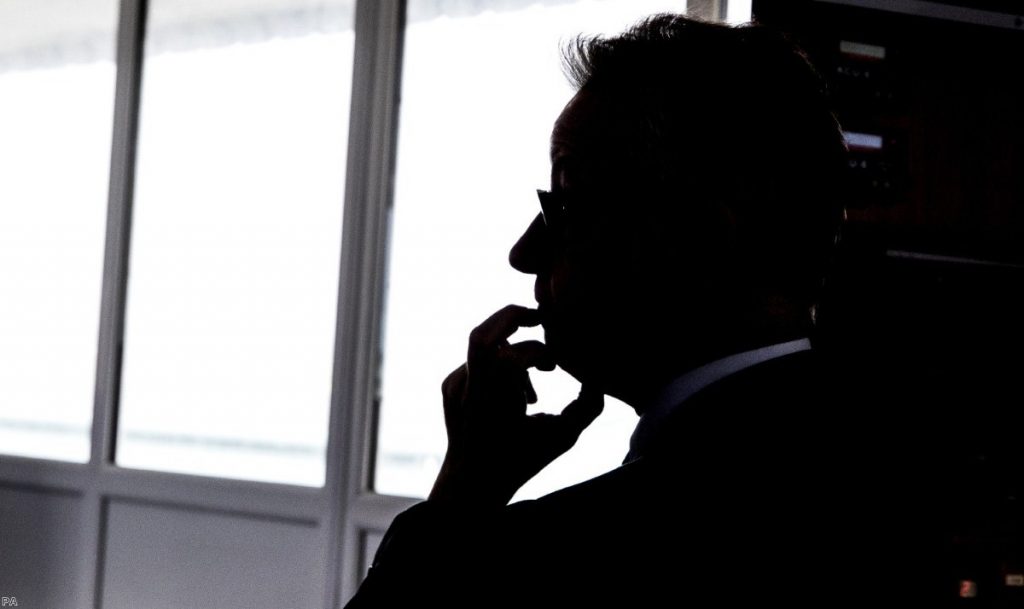The below content first appeared in Politics.co.uk’s Politics@Lunch newsletter, subscribe here and never miss this daily briefing.
As I write, communities secretary Michael Gove is delivering a statement to the House of Commons, unveiling the government’s new definition of extremism.
The definition describes extremism as “the promotion or advancement of an ideology based on violence, hatred or intolerance” that aims to “negate or destroy the fundamental rights and freedoms of others” or “undermine, overturn or replace the UK’s system of liberal parliamentary democracy and democratic rights”.
It also includes those who “intentionally create a permissive environment for others to achieve” either of those aims.


Gove was at pains to defend the move today, citing cases of the far-right and Islamists working to further their goals — as well as groups benefitting from state engagement.
As had been widely reported, the communities secretary used parliamentary privilege to list some organisations that will be looked at. These include the British National Socialist Movement and Patriotic Alternative. He also named the Muslim Association of Britain, Cage and Mend as giving “rise to concern for their Islamist orientation and views”.
Responding to the statement for the Labour Party, Angela Rayner argued Gove’s comments imply the government has until now been engaging with extremists. She also criticised the way the government has appeared to float possible definitions over the past week. Gove hit back by saying a leak inquiry has been launched.
The SNP’s Alison Thewliss asked Gove if Conservative donor Frank Hester’s comments about Diane Abbott would meet the definition of extremism. The communities secretary said those comments “were clearly racist and regrettable”.
Speaking to reporters during a visit to Gloucestershire, however, the prime minister was more explicit. Rishi Sunak suggested Frank Hester’s alleged remarks wouldn’t fall foul of the definition because it only deals with “organisations that the government engages with”.
Leading the Conservative fightback on the definition, former immigration minister Robert Jenrick said this afternoon that he feels Gove’s wording has landed “in no man’s land”. It does not go “far enough to tackle the real extremists [and does not do] enough to protect the non-extremists”, he argued.
Meanwhile, Labour leader Keir Starmer delivered a speech this morning at the Guildhall school of music in London, pledging to make the arts more accessible to young people from all backgrounds. He said a Labour government would end the “war on culture”. Read more here.
Lunchtime briefing
Diane Abbott: Labour leadership is ‘digging in’ over refusal to restore whip
Lord Frost warns Conservative Party is ‘hurtling towards terrible defeat’ at next election
Labour will end ‘war on culture’ — Keir Starmer’s ‘access to the arts’ speech in full
Lunchtime soundbite
‘I think actually the party is united in wanting to make sure that we don’t have the Labour government, because our plan is the right one for the country’
— Rishi Sunak has insisted his party is “united” despite reports some Conservative MPs are questioning whether he should be replaced ahead of the next election.
Now try this:
‘The fake politics of the National Insurance row’
Henry Hill in ConservativeHome.
‘Keir Starmer Is Facing His Margaret Thatcher Moment’
John Oxley argues that the former PM could be a “useful template” for the Labour leader. Via The House magazine.
‘Why Reform’s rise is deadly for the Conservatives’
Former cabinet minister and New Statesman columnist David Gauke argues that Rishi Sunak’s party cannot afford to have competition for the dwindling pro-Leave electorate.
On this day in 2023…
Minister refuses to rule out TikTok ban on government devices amid security concerns












